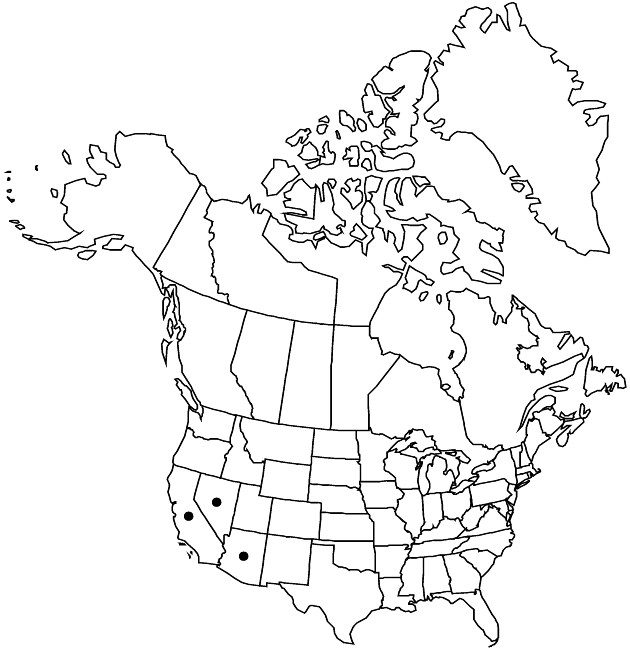Difference between revisions of "Psathyrotes ramosissima"
Proc. Amer. Acad. Arts 7: 363. 1868.
Common names: Turtleback
Basionym: Tetradymia ramosissima Torrey in W. H. Emory, Not. Milit. Reconn., 145. 1848
Treatment appears in FNA Volume 21. Treatment on page 417.
FNA>Volume Importer |
imported>Volume Importer |
||
| (3 intermediate revisions by 2 users not shown) | |||
| Line 11: | Line 11: | ||
|name=Tetradymia ramosissima | |name=Tetradymia ramosissima | ||
|authority=Torrey | |authority=Torrey | ||
| + | |rank=species | ||
|publication_title=in W. H. Emory, Not. Milit. Reconn., | |publication_title=in W. H. Emory, Not. Milit. Reconn., | ||
|publication_place=145. 1848 | |publication_place=145. 1848 | ||
| Line 37: | Line 38: | ||
-->{{#Taxon: | -->{{#Taxon: | ||
name=Psathyrotes ramosissima | name=Psathyrotes ramosissima | ||
| − | |||
|authority=(Torrey) A. Gray | |authority=(Torrey) A. Gray | ||
|rank=species | |rank=species | ||
| Line 52: | Line 52: | ||
|publication year=1868 | |publication year=1868 | ||
|special status= | |special status= | ||
| − | |source xml=https:// | + | |source xml=https://bitbucket.org/aafc-mbb/fna-data-curation/src/2e0870ddd59836b60bcf96646a41e87ea5a5943a/coarse_grained_fna_xml/V19-20-21/V21_1043.xml |
|tribe=Asteraceae tribe Heliantheae | |tribe=Asteraceae tribe Heliantheae | ||
|subtribe=Asteraceae (tribe Heliantheae) subtribe Gaillardiinae | |subtribe=Asteraceae (tribe Heliantheae) subtribe Gaillardiinae | ||
Latest revision as of 20:07, 5 November 2020
Annuals or perennials, 3–30 cm; lanate, furfuraceous. Stems erect and spreading, much branched. Leaf blades rounded-deltate to suborbiculate, 8–25 × 8–30 mm, margins toothed. Peduncles 3–50 mm. Involucres broadly turbinate to campanulate, 6–10 mm. Phyllaries 15–24, outer persistent, 5–6, apically spatulate, tips reflexed to squarrose, inner falling, 10–18, apically lanceolate, tips erect. Florets 16–32; corollas pale yellow, 4.5–5 mm. Cypselae 1.5–3.5 mm; pappi of 120–140 subequal bristles in 2–4 series, 3–4 mm. 2n = 34.
Phenology: Flowering mostly in spring, otherwise sporadically, following rains.
Habitat: Sandy soils and desert pavements
Elevation: -30–900 m
Distribution

Ariz., Calif., Nev., Mexico (Baja California, Sonora).
Discussion
Selected References
None.
Lower Taxa
None.